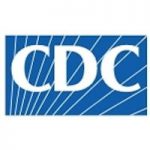
Ebm@school – a curriculum of critical health literacy for secondary school students
A curriculum based on the concept of evidence-based medicine, which consists of six modules.
| 0 Comments | Evaluated
McMaster Evidence-Based Clinical Practice Workshop Resources – Therapy module
This is the therapy module resources provided to the attendees at the McMaster Evidence-Based Clinical Practice Workshop.
| 0 Comments
McMaster Evidence-Based Clinical Practice Workshop Resources – Systematic review module
The Systematic review module resources provided to the attendees at the McMaster Evidence-Based Clinical Practice Workshop.
| 0 Comments
Goals and tools in Prognosis evaluation
How to assess prognosis in Michigan State University’s Evidence-Based Medicine Course.
| 0 Comments
How can you know if the spoon works?
Short, small group exercise on how to design a fair comparison using the "claim" that a spoon helps retain the bubbles in champagne.
| 0 Comments
Teach Yourself Cochrane
Tells the story behind Cochrane and the challenges finding good quality evidence to produce reliable systematic reviews.
| 3 Comments
The need to avoid differences in the way treatment outcomes are assessed
Biased treatment outcome assessment can result if people know which participants have received which treatments.
| 0 Comments

Randomized Controlled Trial Protocols
A 1-hour videoed lecture explaining protocols for Randomized Control Trials (RCTs).
| 0 Comments
How do you know which healthcare research you can trust?
A detailed guide to study design, with learning objectives, explaining some sources of bias in health studies.
| 0 Comments
Psychiatric disorders
Regrettably, research is not always well done or relevant. Take the example of a distressing condition known as tardive dyskinesia. […]
| 0 Comments
Fair measurement of treatment outcomes
Although one of the reasons for using sham treatments in treatment comparisons is to help patients and doctors to stick […]
| 2 Comments
Following up everyone in treatment comparisons
After taking the trouble to assemble comparison groups to ensure that like will be compared with like, it is important […]
| 0 Comments
Comparing apparently similar groups of patients who happen to have received different treatments in the same time period
Comparing the experiences and outcomes of apparently similar groups of patients who happen to have received different treatments in the […]
| 0 Comments
Treatments with moderate but important effects
This section addresses the common situation in which treatments may differ only moderately from each other, but these differences may […]
| 0 CommentsNo Resources Found
Try clearing your filters or selecting different ones.
